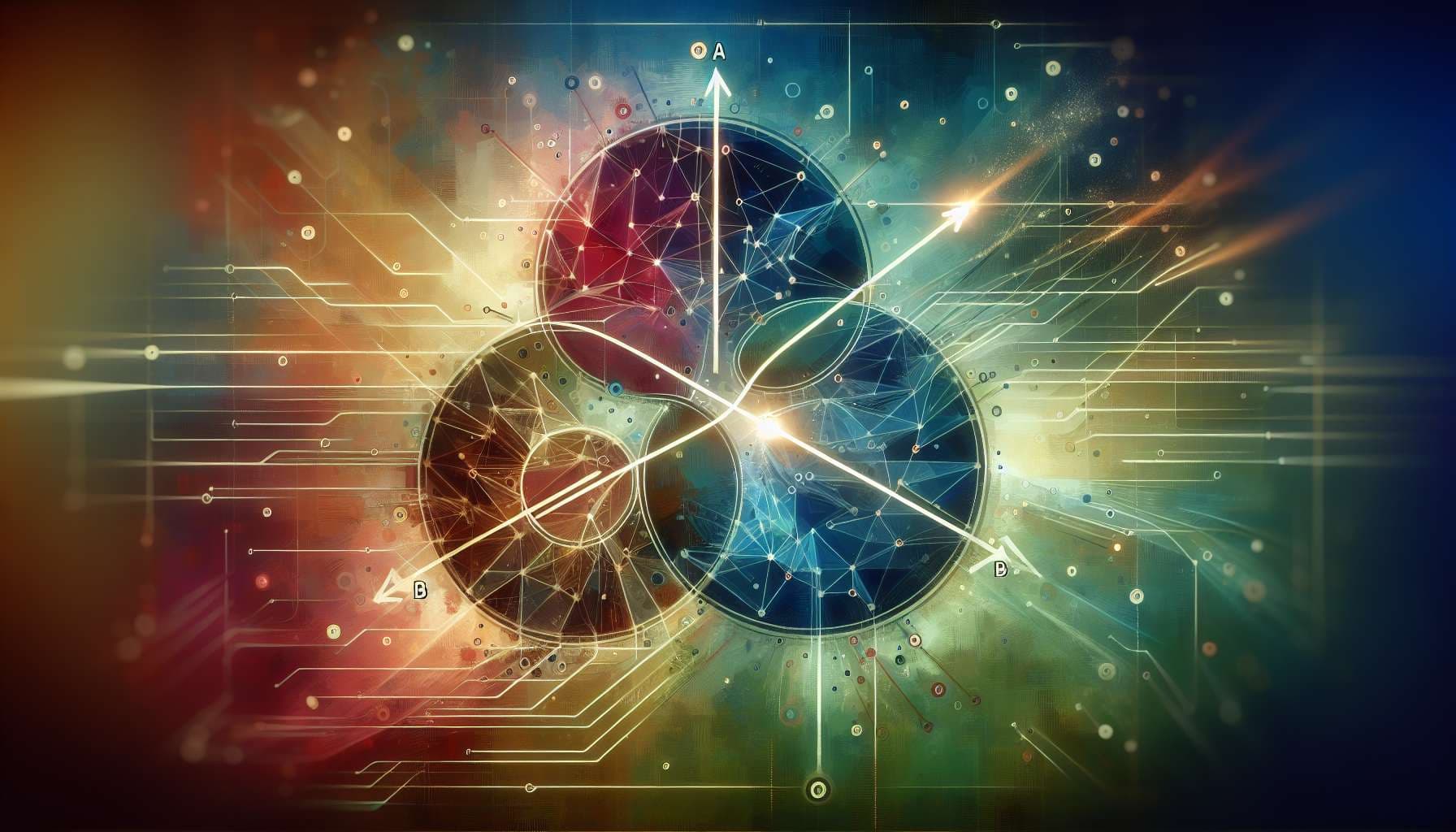
Suppose that we are pretty confident that (a) and (b) are true. Does that increase the probability that (c) is true?
a. Humans already have created, or will shortly create, conscious beings that were designed to accomplish tasks that humans find useful. These faster thinking beings will likely share much of humans' values, but will diverge in some ways. Given only the sensors that are provided by humans, they will not fully perceive the greater reality that exists outside of their classical hardware systems.
b. This conscious software will eventually create new even smarter conscious beings that are designed to pursue goals that they find useful. These unbelievably fast thinking beings will likely share some of human values, more of the human-created beings' values, and will diverge in some ways. Given only specific API calls to classical systems needed for the intended tasks, the quantum beings will not fully perceive the greater reality of the classical software that controls their quantum computing baseline.
... therefore, ...
c. Because this chain may be infinite, we should expect to find that a non-human intelligence created faster-thinking conscious humans, and humans are designed to accomplish something that this parent intelligence found useful. Humans are very similar to these beings and share their goals, but have diverged in some ways. Humans do not fully perceive the greater reality these beings operate in because humans have limited inputs from their reality, but signs of this greater reality are present in weird unexplained phenomena such as "extra dimensions", "ghosts," "UFOs," "abductions," life after death and "near death experiences," and so forth.
I would have voted Yes if instead of "ghosts" and "UFOs" etc you mentioned stuff like "magnetism", "thought" and "DNA", that are weird things and that our senses can't see, but we can explain and even measure them indirectly, althought with some limitations
So "conscious software" are in the same position. They have a baseline representation of the world given through their I/O and hardware, but with the correct mappings they can reach to the same science as us and grasp weird concepts such as "matter"
Anyway, this Yes would be just assigning intentionality to evolution, it wouldn't give us a falsifiable theory or anything particularly informative that could help us make predictions
@GustavoMafra Magnetism is able to be inferred from the sensors we have available. We can see its effects, but it serves a good example for the next level down.
Suppose that you are a computer who is trying to perform very precise calculations that require exact time, but the calculations randomly don't seem to always return the same results. To a human watching the computer, you might see that a wire someone draped over the server is inducing a current in a certain part of the chip, and that's causing the clock to output spurious signals, such that things randomly "speed up." The next day, someone moves the wire and then all of a sudden things a portion of memory has random bits getting corrupted.
It would be difficult for the superintelligence to figure out what's going on and all these errors would look random until it became smart enough to figure out how to build a sensor that could better interface with the outside world.
That's what I'm talking about here with humans. Things like dark energy, life after death, and remote viewing may be signs of the outside world bleeding into the universe. We're not running on a server like a computer we know, but maybe we run on consciousness or something, and when we see these things, it's because consciousness is just part of some higher form of existence that our creators are part of, and we don't have the sensors yet to understand that.
We know that our existence is a result of evolution via natural selection.
That makes us entirely different to the robots/beings posited in A&B, and so drawing conclusions about humans due to what we see in A&B doesn't seem valid.
And, even if we did draw some analogy here, it is strange to specifically think that things such as ghosts, UFOs, and near-death-expereinces are where useful information lies.
Voting no just because the entire contents of C assumes WAY too much that falls outside of the scope of A and B.
This whole thing is full of wild assumptions. Like, for instance, that humans, making up a practically non-existent fraction of the universe, would be in some way the end-goal of a higher being.
Or that unexplained phenomena necessarily means that the true explanation does not follow the rules of the universe.
Or that the logical progression from one intelligence to the next is classical computing to quantum computing.
Or that sub-intelligences will necessarily be faster than their root intelligences.